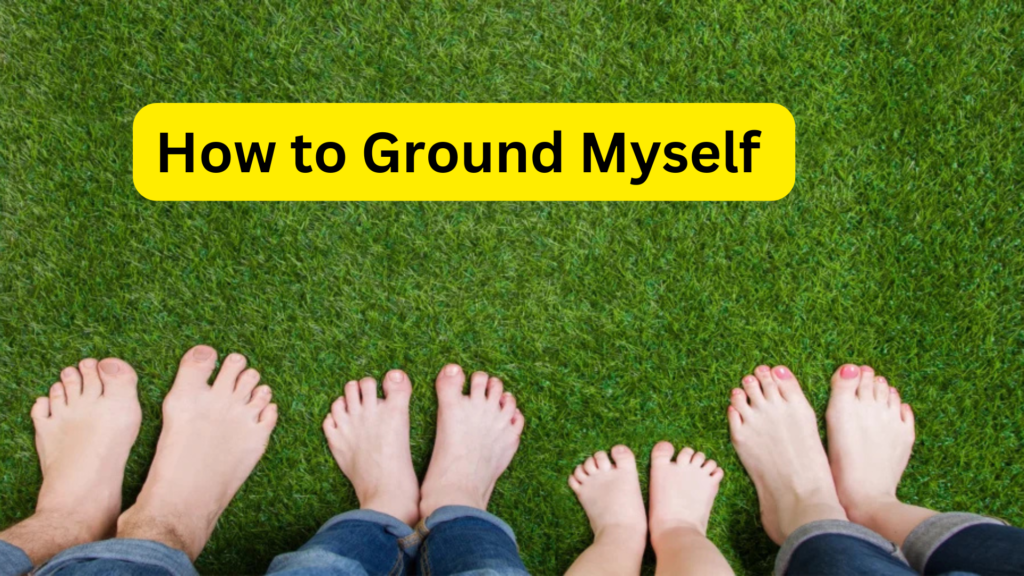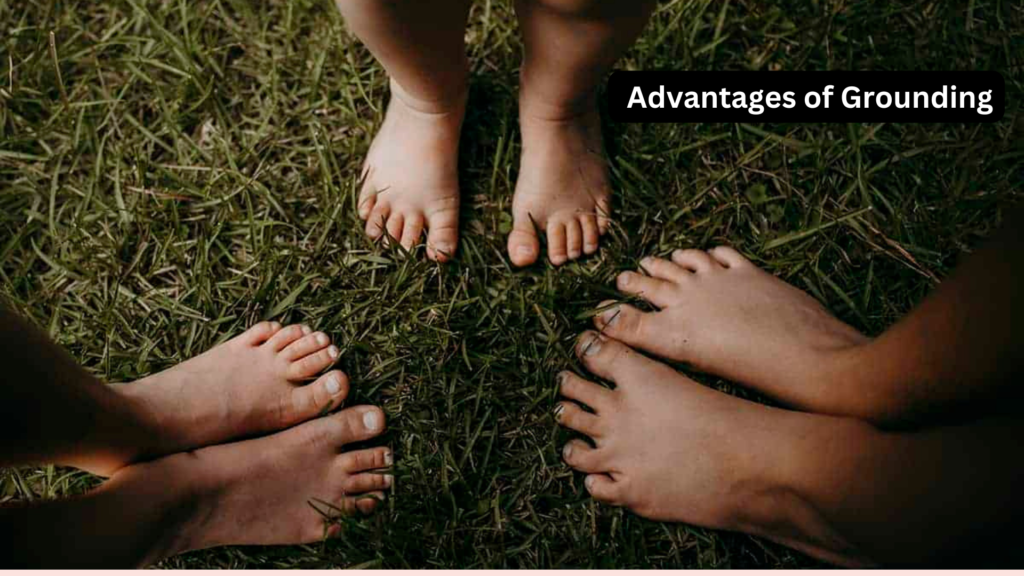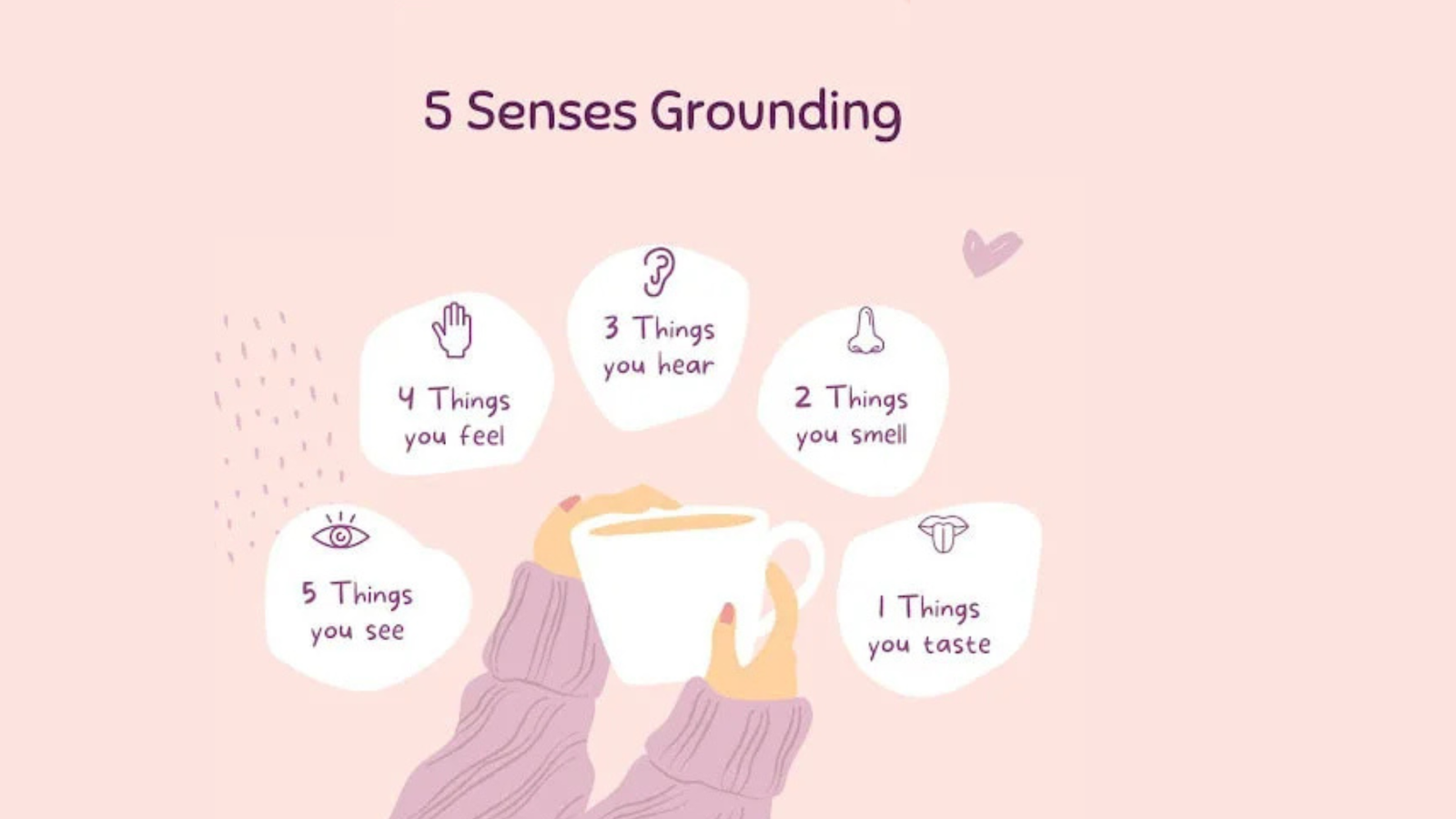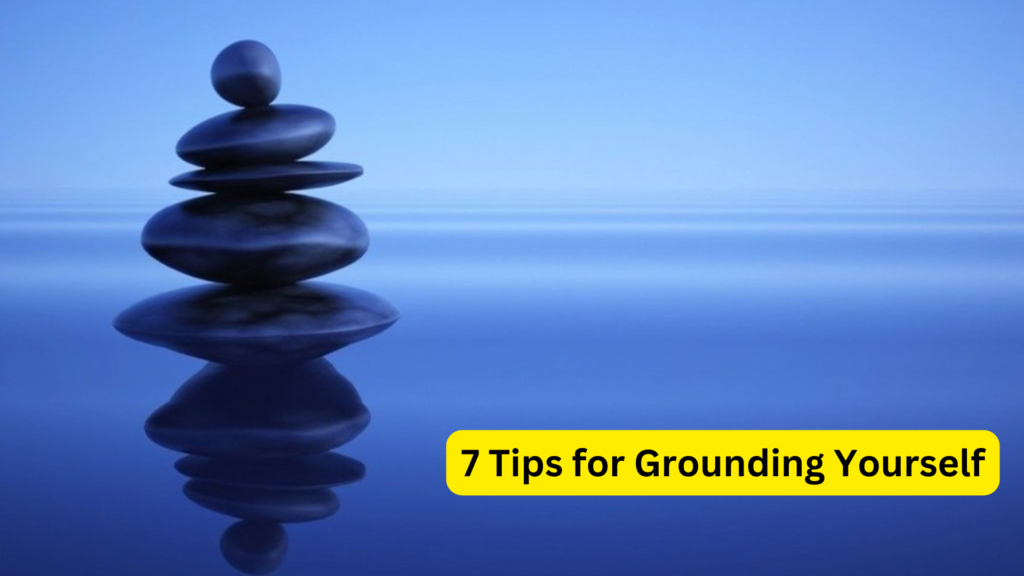
Recently, my life has been quite hectic with numerous projects, creative tasks, calls, helping loved ones, and preparing for yet another move to a new house. Chaos has its own beauty, and I have learned to embrace it. However, it becomes difficult to do so when we feel stressed, scattered, confused, or lost.
To manage this, I focus on grounding myself. Grounding helps us find relaxation and calmness amid the chaos around us. It allows us to feel, “I’m OK, I can handle this.” Furthermore, it has been shown to aid individuals in better emotional regulation. Here, I will explore what grounding means and how to ground myself.
What Does Grounding Mean?
Grounding involves a variety of straightforward techniques that help you reconnect with the present moment. These methods can bring you a sense of stability, balance, and calm, especially during stressful or chaotic times. Grounding techniques can be energetic, physical, emotional, or mental in nature.
When you do grounding techniques, you bring your focus back to the present moment. This process of reconnecting with your environment is also referred to as “earthing.” These techniques are accessible to everyone and can be practiced anytime, whether you’re at work, at home, or outside. They can be especially helpful for managing specific mental health conditions:
- Depression
- Anxiety
- Dissociation
- Stress
- PTSD (Post-traumatic Stress Disorder)
What Are The Signs That You Are Not Grounded?
How can you tell if you are grounded or not in this moment?
You might be feeling ungrounded if you:
- Overthink or dwell on things
- Get easily distracted
- Experience constant anxiety and worry
- Get caught up in personal drama in a way that feels addictive
- Space out frequently
You may also feel ungrounded if you:
- Find it easy to be misled by yourself or others
- Overly focused on your appearance
- Have a strong craving for material possessions, like brands
Physical symptoms of being ungrounded may include:
- Fatigue
- Inflammation
- Trouble sleeping
- Poor circulation
- Chronic pain
It’s safe to say that feeling ungrounded is a widespread issue. Many people are so accustomed to it that they don’t even realize it’s a problem.
The Advantages of Grounding: Is It Effective?

Studies on grounding and earthing have been developing over the past two decades. While it’s still a relatively new field, the findings so far are encouraging. More than twenty peer-reviewed studies have highlighted the positive effects of grounding. For instance, grounding yourself can give you the following benefits:
- Lowers emotional stress
- Boosts mood
- Decreases inflammation
- Boosts immune response
- Improves blood circulation
Dr. Gaétan Chevalier, the Earthing Institute’s director and an engineering physicist, leads these studies. While these studies are promising, you don’t have to rely solely on scientific evidence to understand the benefits of grounding and earthing.
By adopting the mindset of a curious scientist, you can use your own body as a testing ground. This way, you can assess the effects of grounding techniques for yourself.
How Can You Ground Yourself by Using Your Five Senses?

If you start to feel anxious or overwhelmed, take a moment to pause and concentrate on your 5 senses. This shift helps redirect your mind to your immediate surroundings rather than worrying about what lies ahead. Sometimes, you might not have the time to meditate, go for a walk, or write in a journal.
In those moments, using grounding techniques that engage your senses can serve as a quick form of meditation to help you manage strong emotions. Below, I will show you how you can use your 5 senses on the path to “how to ground myself.“
Touch
Shut your eyes and concentrate on the sensations around you. Notice how your body feels in the chair. What textures can you feel from your clothes? If you have fidget toys, try using them and pay attention to their feel. If you’re feeling too warm, try holding an ice cube against your wrist to calm your heart rate and cool down your body.
Sight
Connect with what you see around you. Choose a color and count every object nearby that matches it. Alternatively, you can sit by a window and observe the outside world, taking slow, long breaths as you do so.
Smell
What scents are present in your environment? Is there a candle close by with a fragrance you like? Direct your attention to the smells around you. Simply identify them and take a deep breath.
Taste
If you can, get a snack and eat it slowly. Pay close attention to each bite’s taste of your food. Consider keeping a salty treat or some sour candy at your desk. Choose something with a flavor you enjoy and can easily focus on. Take small sips of tea or water while practicing deep breathing.
Sound
Close your eyes and listen to the sounds around you. Identify the different noises in your surrounding environment. If it’s quiet, focus on your breathing and listen to the sound of each breath. If you have a preferred song or TV show that helps you relax, consider playing it.
By engaging your 5 senses, you can interrupt spiraling or anxious thoughts. This practice helps you gain a clearer perspective on what’s causing your anxiety, allowing you to adjust your mindset or change your approach to lighten the burden.
Your senses are a valuable tool for staying grounded in the present. It’s also beneficial to develop daily grounding habits that can help soothe your mind.
7 Tips on How to Ground Myself

Having grounding techniques on hand can make a big difference when you need to feel centered and regain your calm. By including these techniques in your daily routine, you can develop a personal grounding strategy that suits you. Let’s check out seven tips on how to ground myself.
- Ensure A Good Night’s Sleep
Try to get 7 to 9 hours of sleep every night. A properly rested mind is stronger and can manage stress more effectively. Establish a bedtime routine by turning off screens an hour before you sleep and ensuring your room is dark and quiet.
- Adopt Various Viewpoints
When dealing with a problem, try writing down or talking with a friend about three different ways to view the situation. A fresh perspective can lead to effective solutions.
- Concentrate on Your Breathing
Breathe slowly and deeply. Pay attention to the sensation of air flowing in and out of the body. Simply focusing on your breath can greatly soothe your mind. You can use the 4–7–8 breathing method to calm your mind. Firstly, inhale for 4 seconds. Then, hold your breath for 7 seconds, and finally exhale for 8 seconds. Repeat this process as needed.
- Avoid Excessive Thinking
If you notice yourself worrying, take a moment to pause and then write your thoughts on a paper. Writing them down can break the cycle of overthinking and help you maintain a more realistic view of the situation.
- Engage In Activities Where You Excel
Participate in activities that highlight your strengths to improve your sense of ability and confidence. Participate in activities that highlight your strengths to improve your sense of ability and confidence. Set aside time every week for an activity or hobby you are good at, whether it is solving puzzles, painting, or cooking.
- Listen to Music
Identify music that brings you comfort. Consider making playlists tailored to your needs—one for relaxation, another for boosting energy, one to lift your mood, and definitely one for dancing.
- Make A Routine
A daily routine offers structure and a feeling of normalcy, which can help you stay grounded. You can plan your day the evening before, making sure to include time for meals, work, exercise, and relaxation.
Closing Remarks
Grounding techniques are effective for improving your body awareness, and they also offer various other health benefits. These techniques can boost your physical and mental performance and overall health. If you are new to grounding, exploring many techniques might feel overwhelming.
Keep in mind that there is no one-size-fits-all solution. Try out different methods and stick with the ones that suit you best. Aim to create a personalized “grounding toolkit” that includes all the insights and techniques you have gathered about yourself.
This toolkit will help you remain grounded, no matter how devastated you might feel. I hope that this article on “How to ground myself?” has given you clear insights about grounding.
